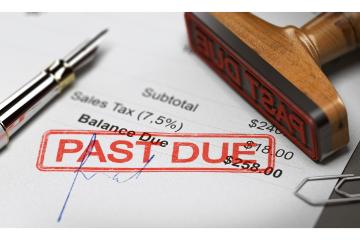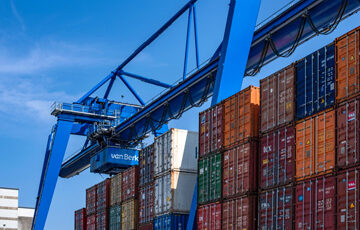
In the Netherlands, creditors are bound by crucial legal duties to safeguard their rights and interests. These duties span a range of activities, from maintaining accurate records to adhering to laws related to debt collection, bankruptcy, and insolvency. For creditors, grasping these responsibilities is key to effectively maneuvering through the complexities of Dutch debt collection. It ensures that their claims are properly managed and respected. This article delves into the various responsibilities and obligations that creditors in the Netherlands must adhere to, offering insights into the legal framework that dictates their actions and establishes their rights.
Key Takeaways
- Creditors in the Netherlands have a legal duty to act in good faith towards debtors and provide accurate information about the debt.
- They must treat debtors with respect and dignity, making reasonable efforts to resolve disputes and avoiding fraudulent or deceitful practices.
- Creditors are required to exercise due diligence in debt collection practices, communicate respectfully and non-abusively with debtors, and comply with laws and regulations governing debt collection.
- In bankruptcy proceedings, creditors have legal duties to accurately report claims, participate in meetings, cooperate with the bankruptcy trustee, and refrain from hindering or delaying the liquidation process.
Responsibilities of Creditors in the Netherlands
Creditors in the Netherlands bear certain legal duties and responsibilities in their interactions with debtors. These responsibilities are essential for maintaining a fair and balanced relationship between the creditor and the debtor. One of the primary responsibilities of a creditor in the Netherlands is to ensure that they act in good faith towards the debtor. This means that creditors must not engage in any fraudulent or deceitful practices when dealing with debtors. They should provide accurate information about the debt, including the amount owed and any applicable interest rates or fees.
Moreover, creditors also have a responsibility to treat debtors with respect and dignity. They should not harass or intimidate debtors in an attempt to collect the debt. This includes avoiding aggressive or abusive language, repeatedly contacting the debtor without reason, or revealing the debt to third parties without proper consent. In addition to these responsibilities, creditors in the Netherlands have a liability to make reasonable efforts to resolve any disputes or issues that may arise during the debt collection process. This includes responding to debtor inquiries or complaints promptly and providing relevant documentation or evidence to support their claims.
Creditor’s Duty to Maintain Accurate Records
To ensure compliance with legal obligations, creditors in the Netherlands are required to maintain accurate records of all relevant information about the debts owed by the debtor. This duty to maintain accurate records is essential for both the creditor and the debtor, as it allows for transparency and accountability in the debt collection process. Failure to fulfill these record-keeping obligations can have serious consequences for creditors.
One of the main reasons why creditors are required to maintain accurate records is to prevent any potential disputes or misunderstandings regarding the debts owed. By keeping detailed records of the amounts owed, payment dates, and any relevant communications, creditors can easily demonstrate the existence and validity of the debts. This helps to avoid any confusion or disputes that may arise during the debt collection process.
Inaccurate creditor records can have severe consequences for both the creditor and the debtor. For the creditor, inaccurate records can lead to difficulties in proving the existence and amount of the debts, potentially resulting in the loss of the opportunity to collect the outstanding amounts. On the other hand, inaccurate records can also harm debtors, as they may be subjected to unjustified claims, incorrect amounts, or unnecessary legal actions due to the lack of accurate information.
Obligations of Creditors Regarding Dutch Debt Collection
Creditor obligations regarding debt collection encompass a range of legal responsibilities and duties that must be fulfilled in the Netherlands. These obligations are designed to ensure that creditors adhere to the principles of fairness and transparency when seeking to recover debts from debtors.
One key obligation of creditors is to exercise due diligence in their debt collection practices. This means that creditors must take reasonable steps to verify the accuracy and validity of the debt before initiating any collection efforts. This includes ensuring that the debt is properly documented and supported by relevant evidence.
In addition, creditors have a duty to communicate with debtors in a respectful and non-abusive manner. They must refrain from engaging in harassing or threatening behavior, and they must not use deceptive or misleading tactics in their collection efforts. This is to protect debtors from undue harassment or coercion.
Furthermore, creditors must comply with the laws and regulations governing debt collection in the Netherlands. This includes adhering to the Code of Conduct for Debt Collection, which sets out guidelines for fair and ethical debt collection practices. Failure to comply with these obligations can result in legal consequences, including liability for damages.
Legal Duties of Creditors in Bankruptcy Proceedings
In bankruptcy proceedings, creditors are bound by a set of legal duties that govern their actions and obligations towards the debtor and the bankruptcy process. These duties are designed to ensure fairness, transparency, and accountability in the liquidation process.
Here are three key legal duties that creditors must adhere to in bankruptcy cases:
- Creditor’s liability in bankruptcy cases:
- Creditors have a duty to accurately report their claims and provide supporting documentation to the bankruptcy trustee.
- They must also refrain from taking any actions that could hinder or delay the liquidation process.
- Furthermore, creditors may be held liable for any fraudulent or preferential transfers they received from the debtor prior to the bankruptcy filing.
- Creditor’s role in the liquidation process:
- Creditors play an active role in the liquidation process by participating in meetings of creditors, where important decisions are made regarding the distribution of assets and the approval of the debtor’s reorganization plan.
- They have the right to vote on these matters based on the size and nature of their claims.
- Duty to cooperate with the bankruptcy trustee:
- Creditors are obligated to cooperate with the bankruptcy trustee by providing relevant information and documents related to the debtor’s assets and financial affairs.
- This cooperation helps the trustee in effectively managing the bankruptcy estate and maximizing the recovery for all creditors.
Creditors’ Rights and Obligations in Insolvency Cases
Creditors in insolvency cases have specific rights and obligations that govern their actions and responsibilities towards the insolvent debtor and the insolvency process. When a debtor becomes insolvent, creditors are entitled to submit their claims to the insolvency administrator. These claims represent the amount of money owed to the creditor by the insolvent debtor. Creditors must provide all necessary documentation to support their claims, including invoices, contracts, and any other relevant evidence.
In insolvency cases, creditors’ claims are subject to a specific order of priority. Secured creditors, such as those with mortgages or liens on the debtor’s assets, have a higher priority over unsecured creditors. Within the category of unsecured creditors, certain claims, such as those for unpaid wages or taxes, may have priority over other general unsecured claims. The priority of creditors’ claims determines the order in which they will be paid from the assets of the insolvent debtor.
Creditors also have the right to participate in insolvency proceedings and attend meetings of creditors. These meetings provide an opportunity for creditors to voice their opinions, ask questions, and vote on matters related to the insolvency process, such as the approval of a proposed reorganization plan or the appointment of a trustee.
Frequently Asked Questions
How Long Do Creditors Have to Maintain Accurate Records of Debts in the Netherlands?
Creditors in the Netherlands have a legal obligation to maintain accurate records of debts for a certain period of time; however, the specific duration varies depending on the circumstances, such as bankruptcy proceedings.
Can Creditors in the Netherlands Charge Interest on Outstanding Debts?
Creditors in the Netherlands have the legal right to charge interest on outstanding debts. However, there are specific legal requirements that must be followed, ensuring transparency and fairness in the charging of interest.
What Actions Can Creditors Take to Recover Debts in the Netherlands?
Creditors in the Netherlands have a range of legal actions they can take to recover debts, such as sending payment reminders, initiating legal proceedings, or hiring debt collection agencies. These actions are guided by the creditors’ legal duties in the Netherlands.
Are There Any Specific Legal Obligations That Creditors Must Follow During Bankruptcy Proceedings in the Netherlands?
Creditors in the Netherlands have specific legal obligations during bankruptcy proceedings. These obligations include providing accurate and complete information to the bankruptcy trustee, attending meetings, and submitting proof of claims within specified deadlines.
How Are Creditors’ Rights and Obligations Different in Insolvency Cases Compared to Other Debt Collection Scenarios in the Netherlands?
In insolvency cases, creditors’ rights and obligations differ from other debt collection scenarios in the Netherlands. The specific legal duties of creditors in these cases are governed by the insolvency laws and regulations, aimed at ensuring fair treatment of all parties involved.
Conclusion
In conclusion, creditors in the Netherlands have several legal duties to fulfill. They are obligated to maintain accurate records of debts and ensure proper debt collection practices.
In bankruptcy proceedings, creditors have specific legal duties to adhere to. They must participate in the proceedings, file their claims, and cooperate with the appointed trustee. They also have the right to object to the debtor’s proposed restructuring plan.
Additionally, in insolvency cases, creditors have both rights and obligations. They have the right to participate in the decision-making process and vote on important matters such as the appointment of a trustee or the approval of a restructuring plan. However, they also must act in the best interests of all creditors and not engage in any unfair or preferential treatment.
Like a skilled conductor guiding a symphony, creditors play a vital role in the financial system. They ensure the proper functioning of debt management and recovery processes, which are crucial for maintaining the stability and integrity of the economy. Overall, creditors in the Netherlands have important responsibilities and rights in various legal proceedings, and their actions significantly impact the overall financial landscape.


